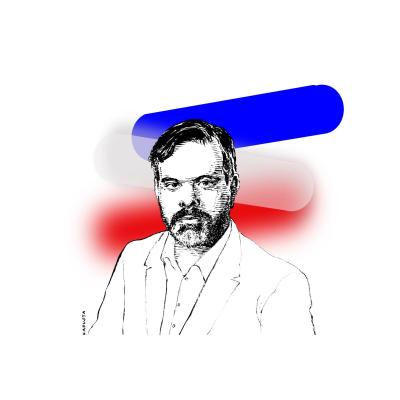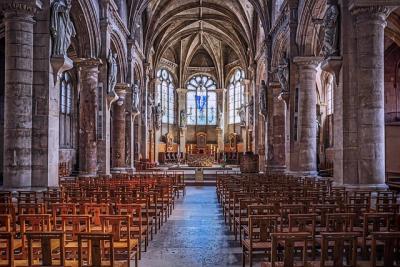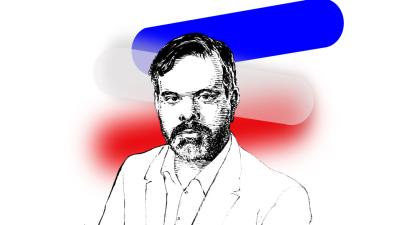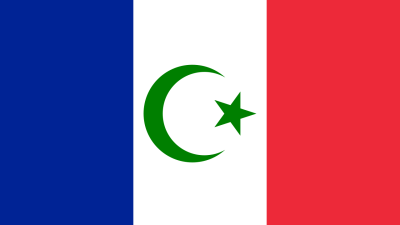Loup Viallet: To become an essential power on the European stage, Poland must develop its African geopolitics and build convergences with France
Loup Viallet is a collection director, author, lecturer and analyst. A specialist in African geopolitics and international economics, he wrote "La fin du franc CFA" (VA Éditions, 2020) and "Après la paix" (VA Éditions, 2021). See his portrait in Contrepoints: « Loup Viallet: l'auteur qui repense les rapports entre la France et l'Afrique » (contrepoints.org).
Patrick Edery: You were recently profiled in Contrepoints under the headline: "Loup Viallet: l'auteur qui repense les rapports entre la France et l'Afrique". In the face of anti-French propaganda on the African continent and the problems caused by mass immigration from these countries to France, a teasing reader might be tempted to ask you: why maintain relations with Africa now? In the interests of both parties, wouldn't a pause in our relations be more beneficial?
Loup Viallet: Your teasing reader is not the only one to ponder the need for a "pause" in relations between France and Africa.
For extremist politicians and agitators, such as Jean-Luc Mélenchon, Juan Branco and Kémi Séba, that 'pause' would be tantamount to the end of a form of post-colonial tutelage exercised by France over its former African colonies ('Françafrique', embodied by the CFA franc and the French military presence in West and Central Africa). Their diagnosis is as far-fetched as it is dangerous: since the end of the Cold War, Françafrique has existed only as a fantasy, a paranoid discourse. It's a catch-all term that allows African governments to take no responsibility for their own sovereign choices by accusing France of evils for which it is not responsible. The majority of French companies' interests in Africa have long since been outside the former 'pré carré' (in Morocco, Nigeria, South Africa, Angola, etc.) and the French guarantee on the CFA franc (the French treasury ensures unlimited convertibility and a fixed parity between the CFA franc and the euro with no resource conditions) benefits African companies over 50 times more than European economies. As for the successive coups d'état in sub-Saharan Africa, they receive good wishes from Moscow - not from Paris.
Some academics whose judgement is not clouded by any form of militant dogmatism have also abandoned the diagnosis of a neo-colonial France but share the conclusions of the demagogues I mentioned earlier. Why do they do this? Precisely because they believe that demagoguery has destroyed France's reputation and authority in Africa. That “all African” policy has become counter-productive because of a rejection of France that has been amplified and exploited by ideologues and propagandists. This is particularly true of Michael Shurkin and Pierre Haroche, who subscribe to the idea that France has become "radioactive" in the region and suggest that French power policy in sub-Saharan Africa should be abandoned. For Shurkin, France would do better to retreat to the "Indo-Pacific" to defend its "vital interests". For Haroche, the dismantling of Franco-African military cooperation would allow to strengthen the presence of French armies in Eastern Europe.
I recently expressed my disagreement with these conclusions in an article published in Causeur. It seems to me that Mr Shurkin and Mr Haroche overestimate the political significance of 'anti-French sentiment' (as well as its reality: for example, in Niger anti-French sentiment was massively fuelled AFTER General Tchiani's putsch but was not its cause; in Gabon the new putschist regime immediately expressed its desire to continue cooperating with France, etc.) and underestimate the importance of the French presence in the region). They also underestimate the importance of Africa's stability for the security of not only France but the whole European continent, from west to east. We do not have the same understanding of French and European interests. Nor of the interests pursued by a number of African states, which need secure, powerful and determined allies to strengthen their security and contribute to their economic emergence.
Unlike Asia, Africa is marginal in the foreign trade of France and European countries. However, it is absurd to consider Africa's importance for Europe just in terms of our trade balance. Africa's weaknesses have a direct impact on European societies. Over the last three years, the succession of coups d'états in the Sahel has strengthened the sources of threats to the future of both continents: the expansion of Islamist terrorist groups, increased migratory pressure towards the countries of the Gulf of Guinea, North Africa and Europe, the establishment of Russian imperialism in Mali, and so on.
I am not defending France's African policy as it currently stands, for it is illegible and riddled with hesitations and contradictions, but rather the need for France and its European neighbours to have an African policy. The security of Europe's borders is not at stake in East Timor, Bangladesh or the Cook Islands. It is being tested on our eastern flank, on the borders with Russia, and on our southern shore in the Mediterranean neighbourhood and our wider African neighbourhood.
From the geopolitical point of view, Africa is to France and Europe what Latin America is to the United States: an area whose proximity to our continent implies shared vital interests.
Russia's use of immigration as a weapon to destabilise Europe is well known in Poland, which in 2021 was attacked by Belarus using migrants. At a time when Europe is rearming in the East, how should we interpret Russia's action "on our southern border", in our "wider Mediterranean and African neighbourhood" as you put it?
First and foremost, we need a European awareness of the shared dangers on our southern border. This is a prerequisite for building coalitions between the Europeans and convergences with the Africans.
How long will the Europeans allow the Kremlin to put a gun to their heads along the Mediterranean coast? When will they understand that allowing Russia to exploit Africa's vulnerabilities puts in jeopardy not one but two continents?
Over the last ten years, Moscow has deepened its military cooperation with the Algerian regime and interfered in the Libyan conflict through private military companies, such as Wagner. The only Russian aircraft carrier anchored in the port of Tobruk in 2017, and Russian warships carried out joint exercises with Algerian vessels on the Algerian coast in August 2018, November 2019, August and November 2021, October and July 2022 and August 2023.
South of the Sahara, Putin's regime has served as life insurance for the junta in Mali since 2020 and for the Touadéra government in the Central African Republic since 2016. Everywhere that Russia has established itself we see deteriorated security, economic devastation, massacres of civilians, explosion in migration and fragmentation of borders.
By amplifying its weaknesses, the Kremlin's actions are helping to paralyse Africa's economic emergence and jeopardise peace and stability between the two continents.
In 2014, Poland sent a military contingent to support the French Sangaris operation in the Central African Republic, considering that the instability in the region had worrying repercussions for the European continent. Poland must not stop there. While it is in the process of acquiring a degree of leadership in Central and Eastern Europe, it can only become a power to be reckoned with on the European stage by developing an African policy in unison with France, which is at the forefront of preserving the defence of Europe's external borders to the south.
Together, we have an interest in not just containing Russian influence on our southern border, but in uprooting it. Together, we have an interest in investing in the emergence of African countries. A fragmentation of Africa would be a disaster for Europe.
Read also
Interview with Philippe Fabry on the world today and tomorrow
Interview with Philippe Fabry (French historian, geopolitologist and essayist) to mark the publication of an English translation of one of his major works: "Les impérialistes revanchards: Poutine, Hitler, Bonaparte et les autres...".
Patrick Edery
Is France in a terminal phase of dechristianisation?
The situation of the Catholic Church in France is particularly worrying. The number of priests has been gradually decreasing for several years. In the early 1960s, there were 41,000 priests in office. In 1995, there were 29,000, and in 2020 half that number, or about 14,000. What is more, half of the French priests are over 75 years old. Every year now between 600 and 700 priests leave, and their departure is far from being compensated for by the few hundred new priests who take up their duties.
Patrick Edery
Is France Islamophobic?
This may seem a surprising question, given that France welcomes tens of thousands of Muslims from Africa and the Middle East every year, despite the considerable costs involved.














Comments (0)